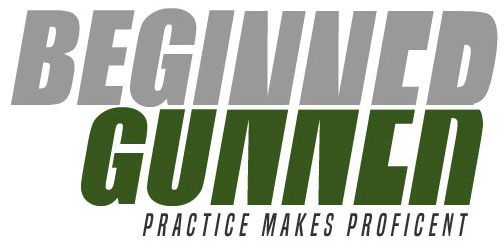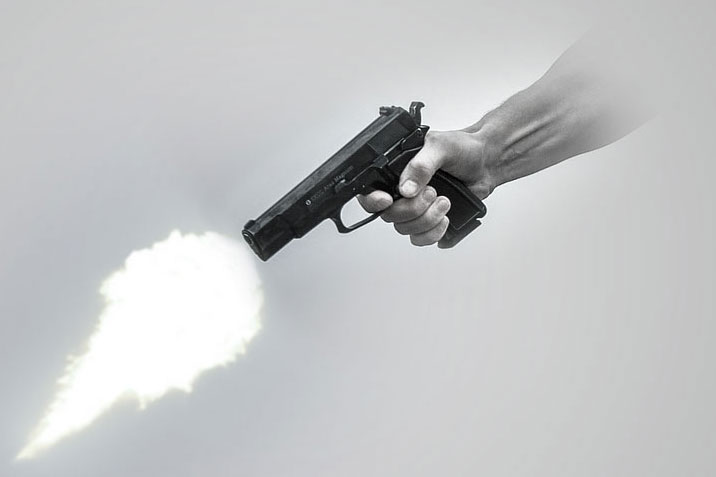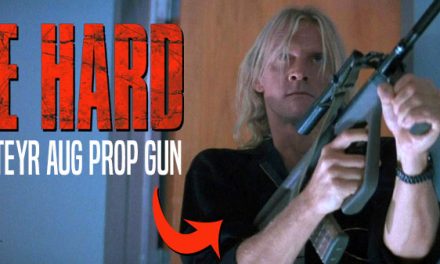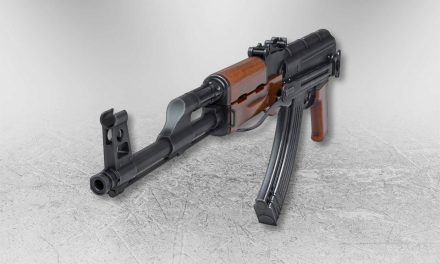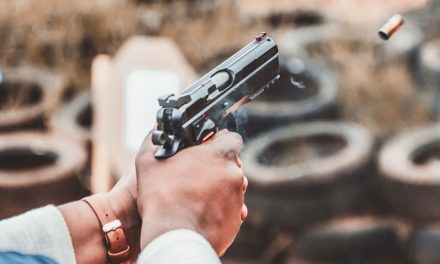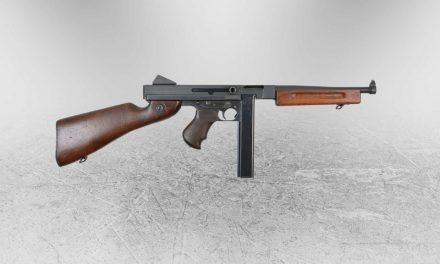If you have shot a firearm before, there is one thing you will know – guns are loud! The average gunshot, depending on the weapon, is anywhere from 140-190 dB. The decibels at this level can cause instant damage to your ears. Gun noise is over 100 dBs higher than the average conversation. Thunder is around 120 dB and gunshots are higher than that. The movies present shooting guns as no big deal. No one really realizes how loud guns really are in person.
Table of Contents
Where the Noise Comes From
Lets explain a little bit on how bullets are fired. When you see a bullet, what you are mostly seeing is the shell casing holding the bullet which is at the tip. Within that shell casing is gun powder which gets ignited with enough power and force to push that bullet out of the casing. This is a basic simplification of how a bullet works in a nut shell…or bullet shell.
How does this pressure cause so much sound? Well, it’s because of where the pressure lies when the powder is ignited. The pressure is buried inside a small metal casing with basically no where to go. Think of it as an extreme version of a champagne bottle that had all of the contents create enough fizz pressure to “pop the top” off. Un-popping the cork makes a sound when it comes off due to the pressure. The same thing applies here.
Going Supersonic
Most ammunition shot today actually fires at supersonic speed. Each type of ammunition speed varies but most fire supersonic depending on size and grain (weight of the round).
If you don’t know what supersonic is, it means traveling faster than the speed of sound. Yes, the force of the pressure ignited in deep in the round generates enough power to shoot the bullet out of the casing and down the barrel faster than the speed of sound. At this rate, you better believe this amount of force would make a good amount of noise.
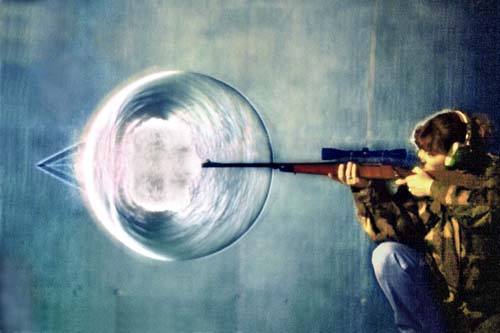
Bullets create small shockwaves
Another thing causing the loud gun noise is hitting a small “sonic boom”. When an object goes supersonic, it creates enough energy to make huge shock waves through the air. These shock waves are very loud. Generally the bigger the object, the bigger and louder the shock waves which translates into a bigger sound.
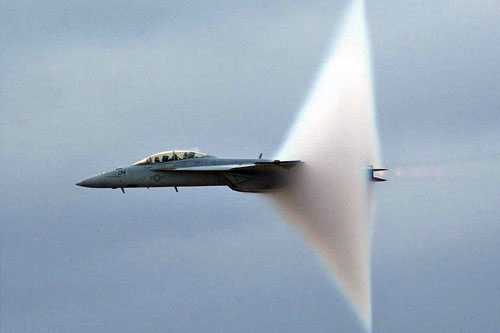
Actual Sonic Booms
Bigger sonic booms can be witnessed in fighter jets. You might have seen this in a video of a fighter jet in a fly-by. Big sonic booms can be dangerously loud enough to break glass when they pass. This is basically happening in a much smaller circumstance when a shot is fired.
So with the pressure releasing inside the bullet in conjunction with the mini sonic boom the bullet makes, the incredibly loud sound is formed.
Gun Noise Suppression
Is there any way to suppress or muffle the sound coming out of firearms? You might have seen a long cylinder item on the end of gun barrel. These are “sound suppressors” or “silencers”. They do what you think they do – suppress the noise coming from a firearm.
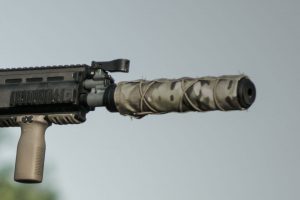
Rifle Sound Suppressor
For the most part, not all the noise is completely suppressed. Actually, sound suppressors still make the shot plenty audible. They reduce sound a lot but not to the point where you should take your hearing protection off. To reduce the sound to the point where you do not need hearing protection, you will need to shoot subsonic ammunition. Again, I wouldn’t recommend firing any guns without hearing protection but, many of today’s standard suppressors paired with subsonic ammunition can make gun noise bearable hovering just below the dangerous sound level.
Think of suppressors like a muffler for a car. The car without a muffler will produce quite a bit of noise but with a muffler, you can still hear the car but the noise will diminish quite substantially.
Overview
As you can see, there are a number of factors that get that gunshot sound so loud. Gunshots also make a unique sound from other sounds like fireworks so when you hear it, you will know the difference.
The best way to protect yourself from gun noise is by wearing hearing protection when you go shooting. Equipping yourself with the best ear protection is crucial to protect your hearing long-term. Check out our list of some of the best electronic hearing protection you can get.
The best way to get used to gun noise is to keep practicing at the range. Remember, practice makes proficient.
